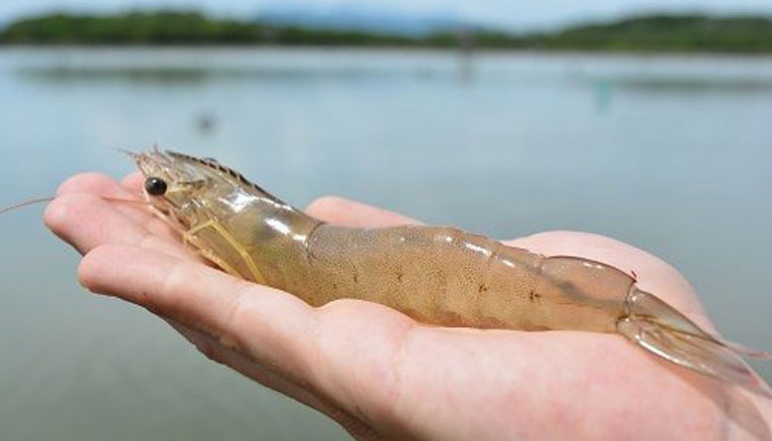Our Research Data-driven development of probiotics for shrimp aquaculture in Ecuador

Shrimp from an Ecuadorian farm Credit: aquahoy.com
Principal Investigator
Otto X. Cordero
- Associate Professor
- Department of Civil and Environmental Engineering
Otto Cordero is an associate professor in the Department of Civil and Environmental Engineering at MIT. Professor Cordero studies the ecology and evolution of natural microbial collectives. His lab is interested in understanding how social and ecological interactions at micro-scales impact the global productivity, stability, and evolutionary dynamics of microbial ecosystems.
Challenge:
Can we improve the practice of probiotic design for developing world aquaculture in the context of shrimp farming by taking advantage of modern genomics tools?
Research Strategy
- Survey the microbiome of shrimp hatcheries and farms in Ecuador and determine whether certain microbiome features correlate with animal feed efficiency and mortality
- Develop a culture collection that could serve as the basis for probiotic design
- Design synthetic microbiomes that maximize the turnover of animal feed, e.g. artemia or algae
- Test the effect of synthetic microbiomes on shrimp farming at collaborator's facilities in Ecuador
Project description
Aquaculture is the fastest growing mode of food production in the world, growing at a rate of approximately 10% per year. Since 2012, fish farms have surpassed wild catch as the main sources of seafood for global populations. While the rapid expansion of aquaculture can serve to alleviate the pressure on natural fisheries, it comes at a high environmental cost, including the destruction of environmentally-beneficial mangroves and the eutrophication of rivers and costal environments. The goal of this research is to lay the groundwork to develop better probiotics for shrimp farming through the use of genomics and machine learning (ML) techniques.
Researchers will collaborate with scientists and shrimp producers in Ecuador to develop improved probiotics that can help shrimp populations more effectively resist pathogens, reducing waste and decreasing the need for the overuse of antibiotics that negatively affect local ecosystems. To this end, the researchers will develop a meta-genomic database with the main microbiome components of shrimp farms and hatcheries at various scales of sampling, in order to identify the microbiome components that best predict farm performance. The team will develop a culture collection and assess the impact of synthetic microbiomes on farm yield.
Outcomes
- Studied the relationship between microbiome composition and performance (animal survival rate, incidence of disease) in a shrimp aquaculture farm in Ecuador
- Developed a new algorithm that can be used to identify beneficial candidate microbes from
microbiome profiling data - Developed a collection of bacterial isolates sampled from shrimp larvae which serves as the basis for the development of new microbiome therapies
- Based on the new algorithm, it was predicted that certain species in the isolate collection should have an inhibitory effect against the main bacterial pathogen, V. parahaemolyticus
Additional Details
Impact Areas
- Food
Research Themes
- Transforming Food Systems
Year Funded
- 2020
Grant Type
- Seed Grant
Status
- Completed

